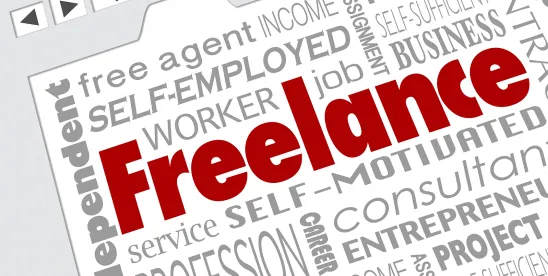Q: What do freelance workers and their employers need to know about New York’s Freelance Isn’t Free Act?
On November 22, 2023, Governor Kathy Hochul signed New York’s Freelance Isn’t Free Act (the Act or FIFA), set to take effect on August 28, 2024. FIFA expands on the protections in the 2016 New York City law of the same name, providing enhanced protections for freelance workers across the state. Given the growing importance of the “gig” economy and the shift in the corporate landscape since the COVID-19 pandemic, the Act addresses some of the underlying concerns in the rising number of lawsuits filed by independent workers over unlawful employment practices.
Scope
The Act mandates that all New York businesses formalize their agreements with independent contractors in a written contract if the total compensation for services amounts to $800 or more within 120 days. The Act also outlines clear payment requirements, mandating that freelancers be compensated on or before the due date specified in the contract, but no later than 30 days after the completion of the freelancer’s services. In addition to written contracts and timely payments, FIFA offers protection against retaliation and discrimination, allowing freelancers to file complaints and seek legal remedies if violations occur.
With the additional protections that FIFA provides to freelancers, employers throughout New York State must be vigilant about the potential litigation risks associated with the Act. As an example, the new provisions impose significant financial liabilities on organizations for missed payment deadlines. Under the Act, freelancers can seek double damages and attorneys’ fees if payment is not made in a timely manner. The Act further allows freelancers to pursue injunctive relief for non-payment claims. Employers are required to retain and provide a copy of the written freelance contract for up to six years. In the event of a dispute, if an employer cannot produce the contract, there is a presumption that the terms presented by the freelancer are the agreed-upon terms.
Compliance
Given the litigation risks associated with violations of the Act and its application across various freelance activities and industries, employers must be proactive in ensuring compliance. To mitigate these risks, employers should take the following steps:
- Specify Correct Worker Classification: Properly classify workers as independent contractors versus employees to avoid misclassification issues under state and federal law. The Act defines a “freelance worker” as “any natural person or organization composed of no more than one natural person, whether or not incorporated or employing a trade name, that is hired or retained as an independent contractor by a hiring party to provide services” in exchange for compensation. Check periodically to ensure that workers initially hired as independent contractors should not be considered employees due to changes in work demands.
- Update Documentation: Take measures such as updating policies, employee handbooks and contracts to reflect the newest provisions of the Act. Additionally, ensuring a robust, long-term record-keeping and retention system can help to retrieve documents for potential legal reviews and audits, in accordance with FIFA’s requirement in certain circumstances for a written contract, which must be retained by the hiring party for at least six years.
- Use Model Contracts: Take advantage of model freelance work agreement provided by the New York City Department of Consumer and Worker Protection office to standardize agreements and ensure that they meet the Act’s mandates.
- Provide Training: Inform and provide training for HR, accounting and other relevant staff, focusing on contract preparation, payment scheduling and procedures for handling complaints.
The Freelance Isn’t Free Act represents a major shift in how freelance work is regulated in New York State, impacting both freelancers and employers. As the implementation date approaches, becoming familiar with and adhering to the FIFA’s provisions will be vital for employers.
Summer assistant Emma Gelch also contributed to this article.



 />i
/>i

